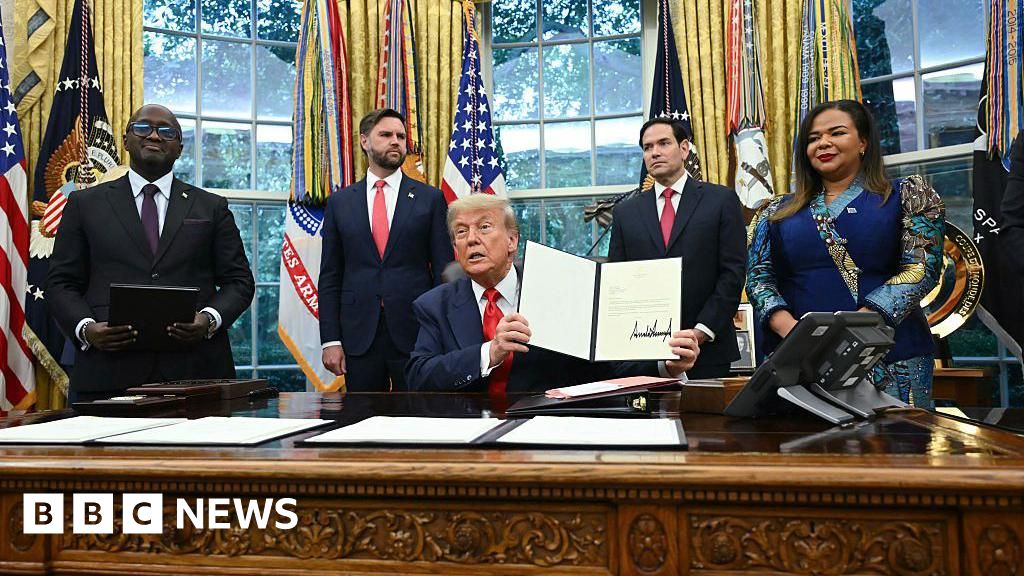DR Congo-Rwanda ceasefire deal still faces many challenges

DR Congo-Rwanda Ceasefire Deal Faces Deep Distrust Despite US Support
A ceasefire agreement between the Democratic Republic of Congo (DRC) and Rwanda, brokered with significant US backing, is facing considerable scepticism and challenges on the ground, raising questions about its long-term viability. The deal, which commits both sides to disarming and disengaging their alleged proxies in eastern DRC, comes amid a complex web of armed groups and deep-seated regional tensions.
Fragile Peace in a Region Riddled with Conflict
The eastern DRC has been plagued by conflict for decades, fueled by competition for its vast mineral resources and ethnic tensions. Dozens of non-state armed groups operate in the region, making it difficult to enforce any peace agreement. Just hours before the signing of the deal, the Codeco militia, a prominent armed group, attacked a displaced persons camp in Ituri province, killing 10 people, highlighting the immense challenges in achieving a complete cessation of hostilities.
The agreement aims to create conditions for the return of hundreds of thousands of displaced people. However, this hinges on the complete end of fighting, a prospect that remains uncertain given the multitude of actors involved and their diverse motivations.
Economic Incentives and Resource Control
The eastern DRC's rich deposits of minerals, crucial for modern technology such as electric car and mobile phone batteries, provide powerful economic incentives for rebel groups. The current agreement does not address these underlying economic drivers, nor does it offer viable alternatives for groups profiting from the conflict. Integrating these groups into the Congolese armed forces, which is already under-resourced, is unlikely to be a sufficient deterrent, according to analysts.
“The allure of controlling valuable territory and its resources is a significant factor in perpetuating the conflict,” explains Dr. Stephanie Wolters, a senior researcher at the South African Institute of International Affairs. “Without addressing the economic grievances and offering alternative livelihoods, any peace deal risks being merely a temporary reprieve.”
US Involvement and Mineral Access
Former US President Donald Trump reportedly congratulated Congolese President Félix Tshisekedi on the peace deal, with reports suggesting US interest in securing preferential access to the DRC's mineral wealth. Granting the US unfettered access, however, could prove unpopular in the DRC, where many feel the country's vast resources have not translated into improved living standards for its citizens.
Rwanda's Role and Allegations of Support for M23
A key sticking point remains the alleged presence of Rwandan forces in eastern DRC. The US position is that Rwanda will withdraw its troops once the Forces Démocratiques de Libération du Rwanda (FDLR), a Hutu-led group which Rwanda accuses the DRC of supporting, is dismantled. Rwanda claims the FDLR aims to overthrow the Rwandan government, justifying its presence in the DRC as a "defensive measure."
Rwanda has consistently denied having troops on the ground in eastern DRC, despite numerous credible reports alleging that it has actively supported groups like M23. If the US can successfully convince Rwanda to withdraw, it would be a significant diplomatic victory for both Washington and Kinshasa.
Historical Context and Regional Tensions
The conflict in eastern DRC is deeply rooted in historical grievances and regional power dynamics. The presence of armed groups like the FDLR, remnants of the Rwandan genocide, has long been a source of tension between the two countries. Accusations of cross-border support for rebel groups have further exacerbated the situation, making it difficult to build trust and achieve lasting peace.
Professor Phil Clark, an expert in conflict resolution at SOAS University of London, notes the historical complexities: "The DRC-Rwanda relationship is fraught with historical baggage. Addressing the root causes of the conflict, including issues of land ownership, citizenship, and political representation, is crucial for any sustainable peace agreement. Simply focusing on military disengagement is unlikely to resolve the underlying issues."
Previous Attempts and Future Prospects
Numerous peace initiatives have been attempted in the past, with limited success. The current deal, while welcomed by some, faces the same challenges that have plagued previous efforts: a lack of trust, the proliferation of armed groups, and the powerful economic incentives driving the conflict.
Whether this latest ceasefire agreement will prove more successful remains to be seen. The commitment of all parties, including the DRC, Rwanda, and the US, will be crucial, as will addressing the underlying economic and political issues that fuel the conflict.
Originally sourced from: BBC News Africa
